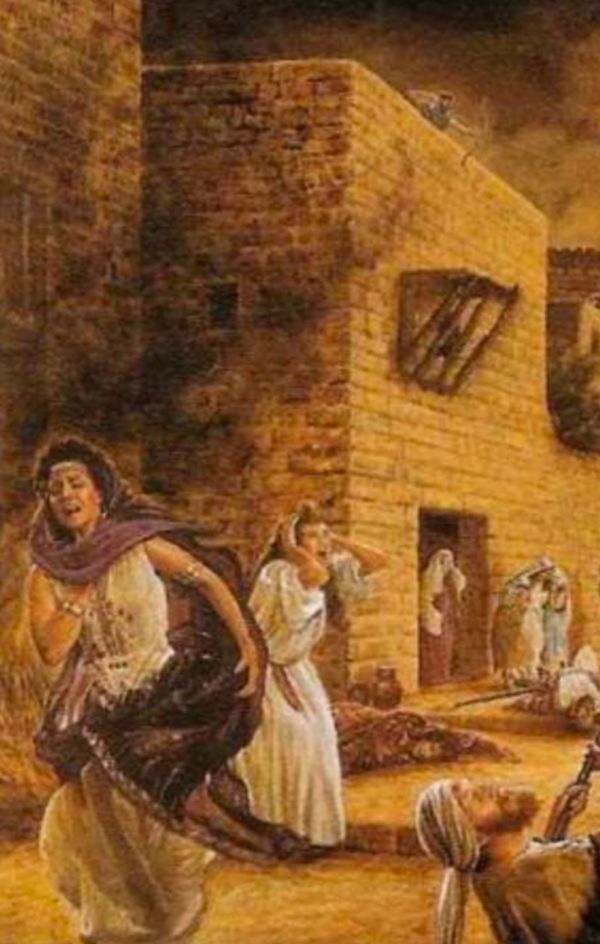«Heaven and earth shall pass away, but my Words shall not pass away»
(Dan 12:1-3; Ps 15; Heb 10:11-14.18; Mk 13:24-32)
Even in the age of telematic progress, the disappearance of economic levels and many ancient securities gives rise to confusion and apprehension.
If everything seems to be called into question, we ask ourselves: how do we relate to the facts that alarm us, and how do we involve ourselves in the chronicle of a world shaken by upheaval?
Ancient man protests the danger of degradation, or lowers his head, humiliated.
Person of Faith takes note; does not lower himself. Rather, strives to discern the genius of time in the folds of history.
Thus we sharpen our inner eye - and recognising the new flashes of life, we raise the gaze.
We want the All, we are not satisfied with monochromatic nothingness.
At the time of Jesus, the 'apocalyptics' held the view that the world's affairs were turning to the worst.
A land in which the lambs are destined to succumb before the beasts can only regress towards increasing disunity and social collapse.
But out of such corruption - and having ascertained man's incapacity - God would bring forth new heavens and a new earth; for each one a propitious, luxuriant, flourishing reality, governed directly by the Lord (the only one who can be trusted).
The encouragement in the First Reading is set in this framework: no tear, no sacrifice will fade away; our involvement - even in fatigue or mockery - is not destined to fall on deaf ears.
This will also be the result of a renewed awareness: only God humanises the earth.
The biblical author conveys this message through the icon of 'Michael', whose name in Hebrew מִיכָאֵל [mì-chà-Él] means «Who (is) like God?».
Rhetorical question to say that no one is like God: no substitute can replace or equal Him.
When the Angel will have the upper hand - that is, when that consciousness takes over - people will understand in all its facets that only the Eternal One makes the world livable.
He will lift us from the sense of contamination or qualunquism that accompanies the believer's journey.
And not only will we not allow ourselves to be seized by the panic of external reversals, but neither by an impression of unworthiness linked to the religious perception of sin [cf. Second Reading].
Calamities, breakdowns, insecurities, in Christ will be perceived not as alarming and distressing facts - for the drama of an agonising world that would drag us down to corruption - but as times and places even favourable to the solution of real problems.
People dragged along by chaotic impulses errs, but the person of Faith perceives external upsets as great opportunities for growth.
The Apostle does not allow himself to be gripped by the pangs of a vital birth.
He experiences the discomforts, transforming them into energy; moulded into opportunities for “therapy”, growth, and a return to the essentials.
Here, the seemingly adverse overhangs become the motive and engine of Exodus. A path that cannot be undermined by the anguish of imperfection.
In this way, both the generically pious man and the person animated by Faith can be considered mothers and fathers of the Future...
But with one substantial difference:
Turmoil of reality is an opportune moment to discover new inner strengths.
If habit has suffocated us, Providence “intervenes” even by throwing everything up in the air - because it sees us as barren.
For this reason, the authentic believer is always one step ahead and is different from the one-sided, devout or sophisticated pious man.
He puts neuroses in the background - and does not wait for Future, nor delegates it... but 'reads' it, anticipates it, builds it.
[33rd Sunday (B), 17 November 2024]












